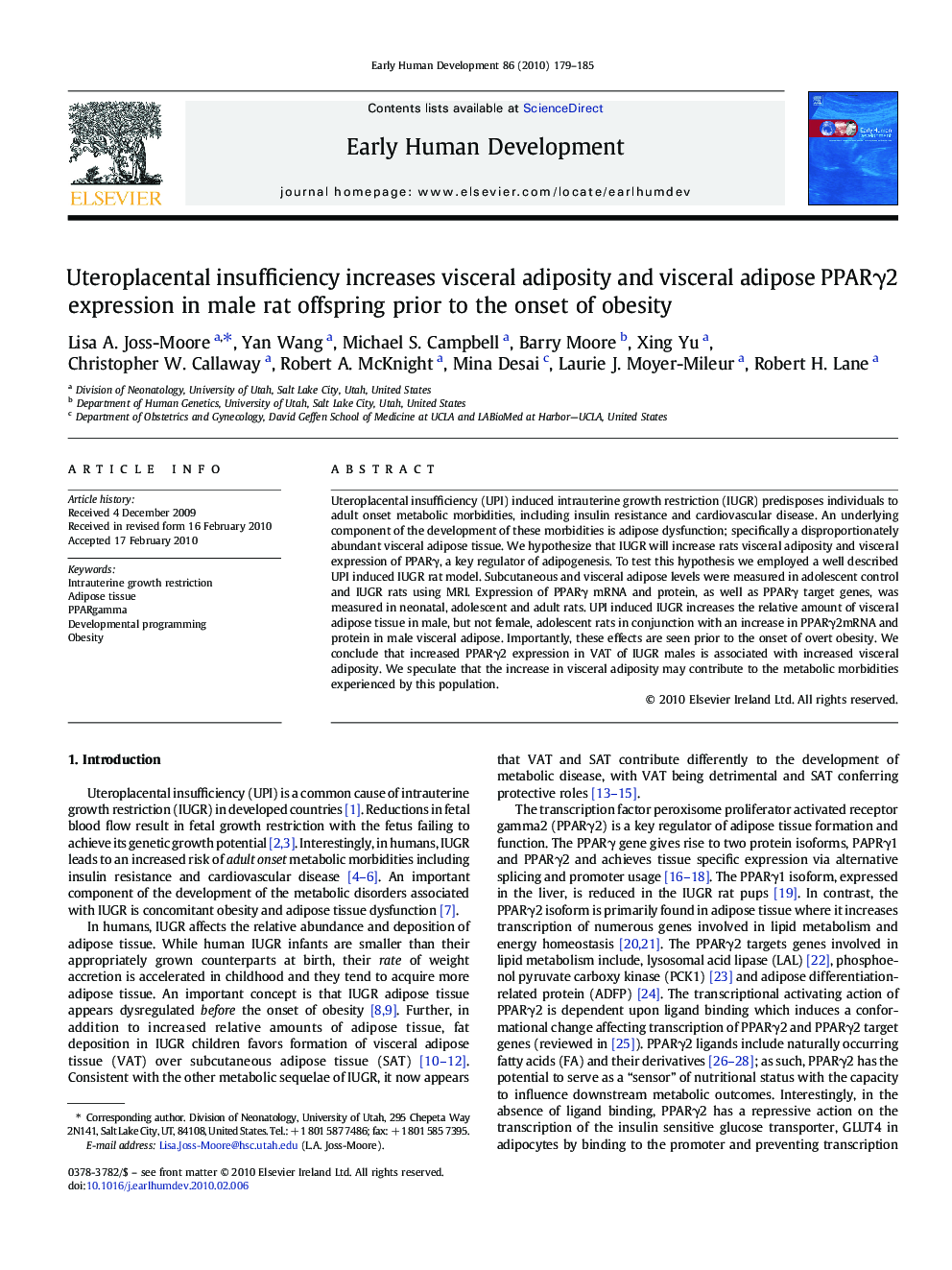| Article ID | Journal | Published Year | Pages | File Type |
|---|---|---|---|---|
| 3917647 | Early Human Development | 2010 | 7 Pages |
Uteroplacental insufficiency (UPI) induced intrauterine growth restriction (IUGR) predisposes individuals to adult onset metabolic morbidities, including insulin resistance and cardiovascular disease. An underlying component of the development of these morbidities is adipose dysfunction; specifically a disproportionately abundant visceral adipose tissue. We hypothesize that IUGR will increase rats visceral adiposity and visceral expression of PPARγ, a key regulator of adipogenesis. To test this hypothesis we employed a well described UPI induced IUGR rat model. Subcutaneous and visceral adipose levels were measured in adolescent control and IUGR rats using MRI. Expression of PPARγ mRNA and protein, as well as PPARγ target genes, was measured in neonatal, adolescent and adult rats. UPI induced IUGR increases the relative amount of visceral adipose tissue in male, but not female, adolescent rats in conjunction with an increase in PPARγ2mRNA and protein in male visceral adipose. Importantly, these effects are seen prior to the onset of overt obesity. We conclude that increased PPARγ2 expression in VAT of IUGR males is associated with increased visceral adiposity. We speculate that the increase in visceral adiposity may contribute to the metabolic morbidities experienced by this population.
